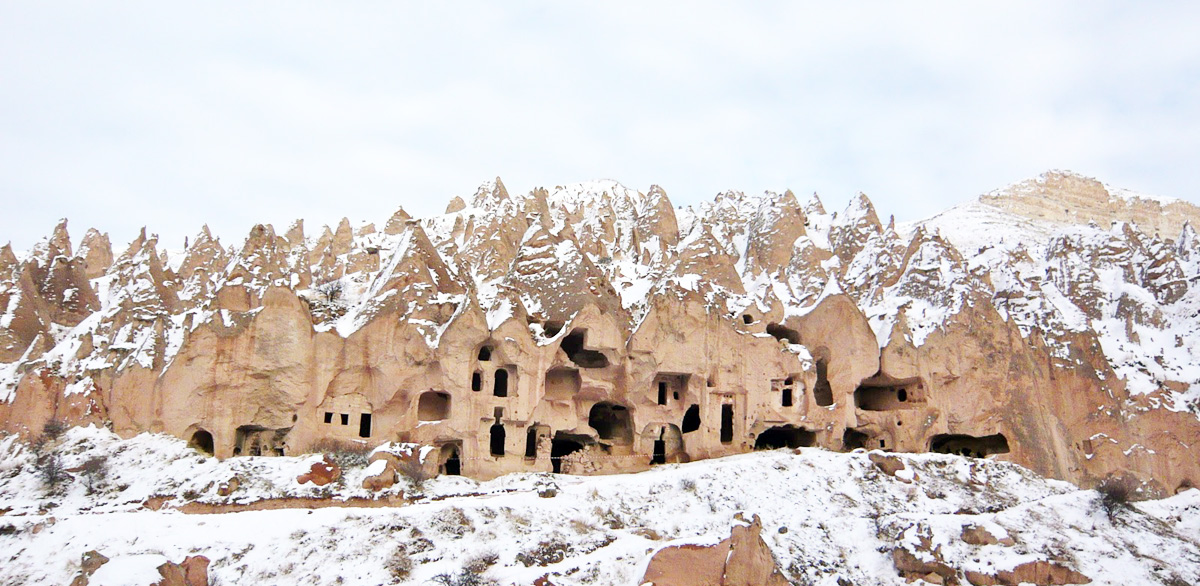My career aspirations following high school were to find a cave and figure it all out. By “all” I mean the whole kit-and-caboodle: why are we here? What’s the meaning of life? How can I best serve? Is there a God? If so, where can I meet him or her?
I had high expectations out of life – I wanted to be good and do good. I wanted to leave the world in a better place than how I found it. I wanted more than just a livelihood.
It started to rain, and kept raining. And while I’m ambitious, I’m also easily swayed. The rain broke my resolve. I folded and took the easy option – enrolling at Sydney University to study Comparative Religions and Philosophy. I figured the answers would surely then present themselves.
Running away
Running away is a logical response for a young adult who is realising (to an extent) the entirety of the world. This may go some way towards explaining the popularity of drugs and alcohol for young people (though old people are pretty good at these, too). The enormity of the world and – more problematic and complex still – our place in it, is no small thing.
For those of us neck-deep in nappies and mortgages, the 20s may seem like a golden dream and those in their 20s as indulged ingratiates. But the big questions are more pressing in your 20s, perhaps because you’re not yet distracted by nappies and mortgages.
It’s normal to want to run away. In fact, it shows that you’re sane.
Though I travelled extensively, both as a backpacker and working as a tour guide, I never found travelling an effective method of escape. While there are distractions aplenty, there are also lashes of unstructured time – time to dwell and ponder, ruminate and worry.
Running away through travel brings your issues into sharp focus because you don’t have the familiar structures and people around to mold yourself into. Your neuroses, and thought patterns, and slobbish habits are exposed to yourself. You have to become good company for yourself. That can be hell.
Making money
Eventually, it’s time to have a little coin in your pocket. It’s nice to feel that your efforts and skills are recognised in the form of cash, which gives you opportunities to create more freedom, more opportunity, more fun, or more investments (whatever floats your boat).
It’s pretty typical for those in their 30s and 40s to be immersed in maximising their earnings. For women, this is a most challenging time of balancing their accelerating careers with their declining fertility (or children). Research shows that our peak earning periods are in our 40s for Australian men and in our 30s for Australian women. Most people are structuring their career and lives around this – and yet this also coincides with being in the thick of young families and the responsibilities this entails.
For many, this is where the story ends. Our careers slowly peter out, with a little less responsibility at work, a little less earnings. We may have a couple of sideways career changes or volunteer at different places, but this is as radical as it gets.
Enter: the crisis
Many of us successfully avoid the major life crisis our entire lives. Others, made of stronger stuff, appear to weather parental deaths, divorce or relationship break-downs, redundancies and the like with nether a backward glance. I admire people like that. I am not that person.
For others, such as Daniel Suelo, whose life is documented in The Man Who Quit Money, an early crisis led to a radical life – to live without money, without charity, and without access to things most of us take for granted: healthcare, clean water and heating.
Says Suelo, “I’m employed by the universe. Since everywhere I go is the universe, I am always secure. Life has flourished for billions of years like this. I never knew such security before I gave us money. Wealth is what we are dependent upon for security. My wealth never leaves me.”
This idea, in its various forms, is not new. Some people have always made the decision to step outside of the tribe and rites of passage, to forge their own solitary path without the support of knowing that they are in step with their kin and peers.
For most of us, the crises are mundane. We don’t feel able to have a proper crisis – how inconsiderate! Who would cook the dinner? Pack the school lunches? Pay the mortgage? Crises are for people without responsibilities, and we have plenty of them.
And so we romance the cave. We dream about the one-way air ticket, the radical career change, the mountain cabin, alone with just the dog, the fire and the typewriter. We romanticise people such as Suelo, and fantasise about unlikely scenarios – scenarios which, if they were to come true, would likely draw us to quickly conclude that it’s not for us.
Romance persists because it’s impossible. Famous romances are ultimately unrequited, dashed by tragic happenstance or divine mistiming. The romance exists in the yearning that must remain unfulfilled. I’ve always hated romance. But I continue to romance the cave.
Making peace
Peace must come because it’s torture living with it. We must make peace with our values, beliefs, actions and words eventually, if we are to be truly awake and aware of reality. Of course, for many, these things never stack up. Some people, though educated and functioning, could never coherently advocate for their values, beliefs, actions and words due to a blind spot of self-awareness.
Of course, principled people are easy to shoot down – and something of a sport for teenagers asserted themselves against their parents. Principles are easy to compromise but that doesn’t mean they lack value. Principles are a map that help us make decisions, large and small, including the decisions we make in privacy, which might be the most honest of all.
I didn’t find any clear answers studying religion and philosophy. In fact, I quickly (hastily?) concluded that all religions were very similar and that debating the finer points of philosophy didn’t necessarily bring you closer to living a good, useful life, but could actually take you further away.
I know suburban crises intimately and all the angst, self-loathing and confusion it causes. Over the years, I’ve worked with many others who feel similarly – wrestling with seemingly opposing desires – to do good, be good and find a cave to draw useful conclusions on life – and to run with the pack, which might entail children, mortgages, salaries and promotions.
I bought myself a cave in Turkey 11 years ago. It’s a house built in the traditional style of the Cappadocia area – carved into solid rock. I haven’t visited it since. It’s my romance, my plan B, and it feels good to know that it’s there. It makes me feel more sane.






I enjoyed reading this. Love the way you write. I ran away to a cave in northern norway. Crises persisted nonetheless.